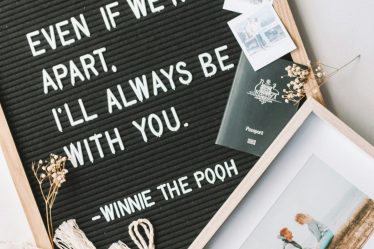
Healthy relationships are grounded in mutual respect, trust, and effective communication. Boundaries play a crucial role in maintaining the integrity of these relationships, providing guidelines for personal space, emotional well-being, and self-expression. Boundaries are not walls that isolate us from others but bridges that foster connection while honoring individual needs and boundaries. In this article, we will explore the significance of boundaries in healthy relationships, their impact on emotional well-being, and practical ways to establish and maintain boundaries that promote respectful and fulfilling connections.
Cover photo by Shingi Rice
The Significance of Boundaries in Healthy Relationships
Respecting Individual Autonomy. Boundaries allow individuals to maintain a sense of self and autonomy within the context of the relationship. Respecting each other’s personal boundaries promotes a healthy balance between togetherness and individuality.
Building Trust and Emotional Safety. Clear boundaries build trust within relationships, as each person feels safe expressing their needs and feelings without fear of judgment or intrusion.
Promoting Effective Communication. Boundaries facilitate open and honest communication, providing a framework for discussing needs, desires, and concerns in a respectful and understanding manner.
Reducing Conflict and Misunderstanding. Established boundaries reduce the potential for conflict and misunderstanding, as each person’s expectations and limits are clearly defined.
Practical Strategies for Setting Boundaries in Healthy Relationships
Reflect on Personal Boundaries. Take time to reflect on your own needs and boundaries. Identify what makes you feel comfortable and secure in a relationship.
Communicate Your Boundaries. Articulate your boundaries clearly and assertively with your partner. Use “I” statements to express your feelings and needs, fostering open dialogue and understanding.
Listen Actively. Listen actively to your partner’s boundaries with empathy and respect. Validate their feelings and demonstrate understanding.
Be Flexible and Compromise. Be willing to negotiate and find common ground when necessary. Healthy relationships require mutual respect for each other’s boundaries and a willingness to adapt.
Practice Self-Care. Prioritize self-care to maintain emotional well-being. Setting boundaries that protect your time, energy, and emotional space allows you to nurture yourself and the relationship.
Conclusion
Boundaries are the cornerstone of healthy relationships, providing a framework for respect, trust, and emotional safety. When both individuals in a relationship communicate and honor each other’s boundaries, they create an environment that encourages personal growth, emotional well-being, and lasting connection. Boundaries should be seen as tools for self-preservation and self-expression rather than barriers that distance us from our partners.
As individuals learn to set and maintain healthy boundaries, they develop a deeper understanding of themselves and their needs. This self-awareness fosters a sense of empowerment and confidence, allowing individuals to engage in relationships with authenticity and honesty.
In healthy relationships, boundaries are not rigid rules but rather flexible guidelines that evolve over time. As life circumstances change, couples must communicate openly and be willing to adapt their boundaries to accommodate each other’s growth and development.
Remember that setting boundaries in a relationship is an ongoing process of understanding and negotiation. Both partners must be committed to fostering an environment where each person’s boundaries are respected, allowing for the growth of a strong and nurturing partnership built on trust and mutual understanding.
By embracing the concept of healthy boundaries and integrating them into our relationships, we can create fulfilling and supportive connections that enhance our emotional well-being and enrich our lives.


